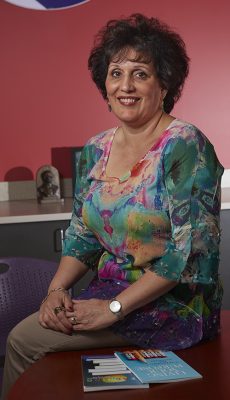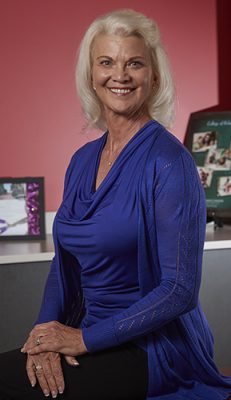
Story by Theresa Smith
Photos by David Kadlubowski
GCU News Bureau
With teacher shortages in several parts of the country and the spotlight on low teacher pay, including the #RedforEd movement in Arizona, it is heartwarming for Grand Canyon University College of Education leaders to make an impact on the newest generation of potential teachers. COE Dean Dr. Kimberly LaPrade and Dr. Marjaneh Gilpatrick, COE’s Executive Director of Educational Outreach, will be working with teenaged prospective educators at the 2018 Educators Rising National Conference on Thursday-Sunday in Orlando, Fla.
Both GCU stalwarts were selected as judges of the national competition that will take place at the conference. High school students from all across the country won state competitions in order to qualify for nationals.
“It is uplifting for educator leaders to see young people who know they want to be teachers,’’ Gilpatrick said. “They have already demonstrated excellence at the state level, so the entries at the national level are usually quite impressive.’’

There are 19 high school competition categories, including children’s literature, creative lecture TED Talk, ethical dilemma, impromptu lesson, lesson planning and leadership in action. Dr. LaPrade is judging the ethical dilemma category in which students log numerous preparation hours prior to the conference, researching what side they will take on an ethical dilemma and finding facts and examples to support their claim. Then, at the conference, they will make verbal arguments.
“As a panel, we judge them on their argument and their speaking skills,’’ LaPrade said. “It is very much like a speech and debate tournament.’’
Gilpatrick also will assess speaking skills as a judge in the leadership in action category, which requires students to describe their project from conception to completion, including explaining how they grew from it, and what kind of impact it will make in a classroom situation. As a two-part evaluation, Gilpatrick scored their writing abilities prior to the conference, noting how well they conveyed their message and met their goal.
“There is a lot of creativity,’’ Gilpatrick said. “They are really thoughtful in their planning, and they are so persistent in how they went from one source to another and how they gathered all of their peers and their community members to back them up. It is really, really amazing.
"And most of the projects are for students with special needs. It shows their heart is dedicated to helping their peers with special needs. Or they may have had some family members with special needs, so it prompted them to go into the special education field, and they really want to make an impact.’’
LaPrade and Gilpatrick, who work closely together on COE matters, previously judged when the organization was called Future Teachers of America. They are eager to work with younger students again.

“There is so much in the news about the teacher shortage and education, and it is not very uplifting or positive whereas this is really positive to see young people who have chosen to be teachers,’’ LaPrade said. “I am so impressed with their poise and passion. They are already in research projects, they are already developing their skills to be teachers, and they are coming into (college) programs with transfer credit through this Educators Rising program because they take courses in their high school. They are excited to make a difference in this world. It gives you a lot of hope.’’





















































